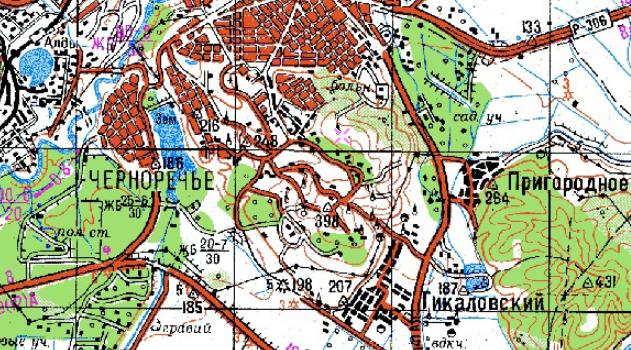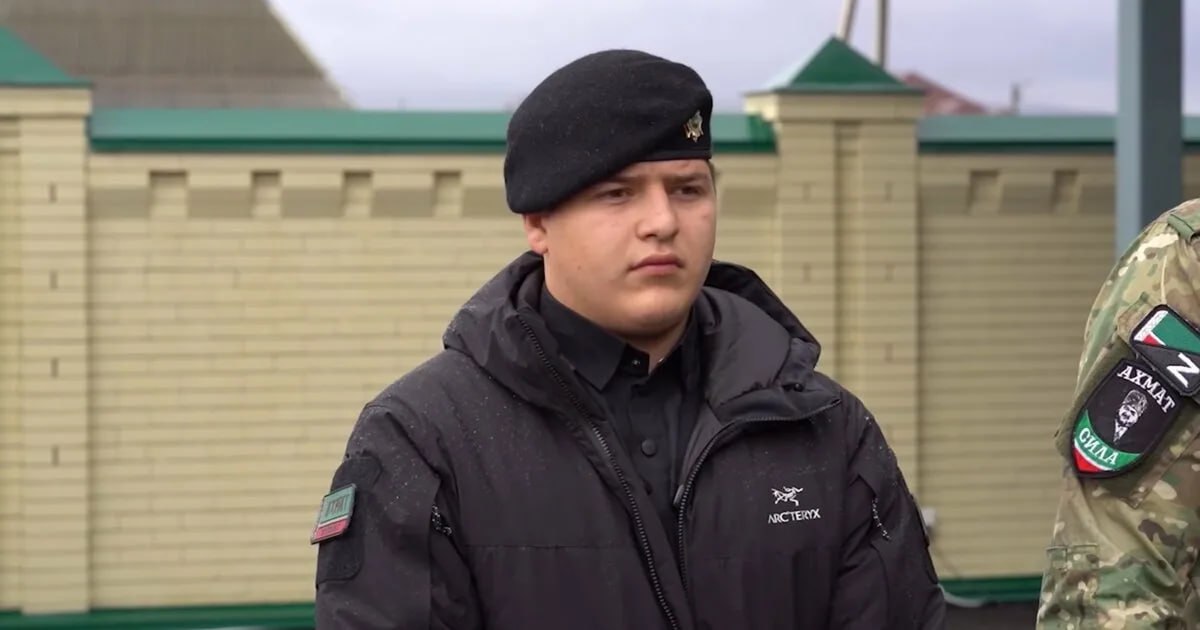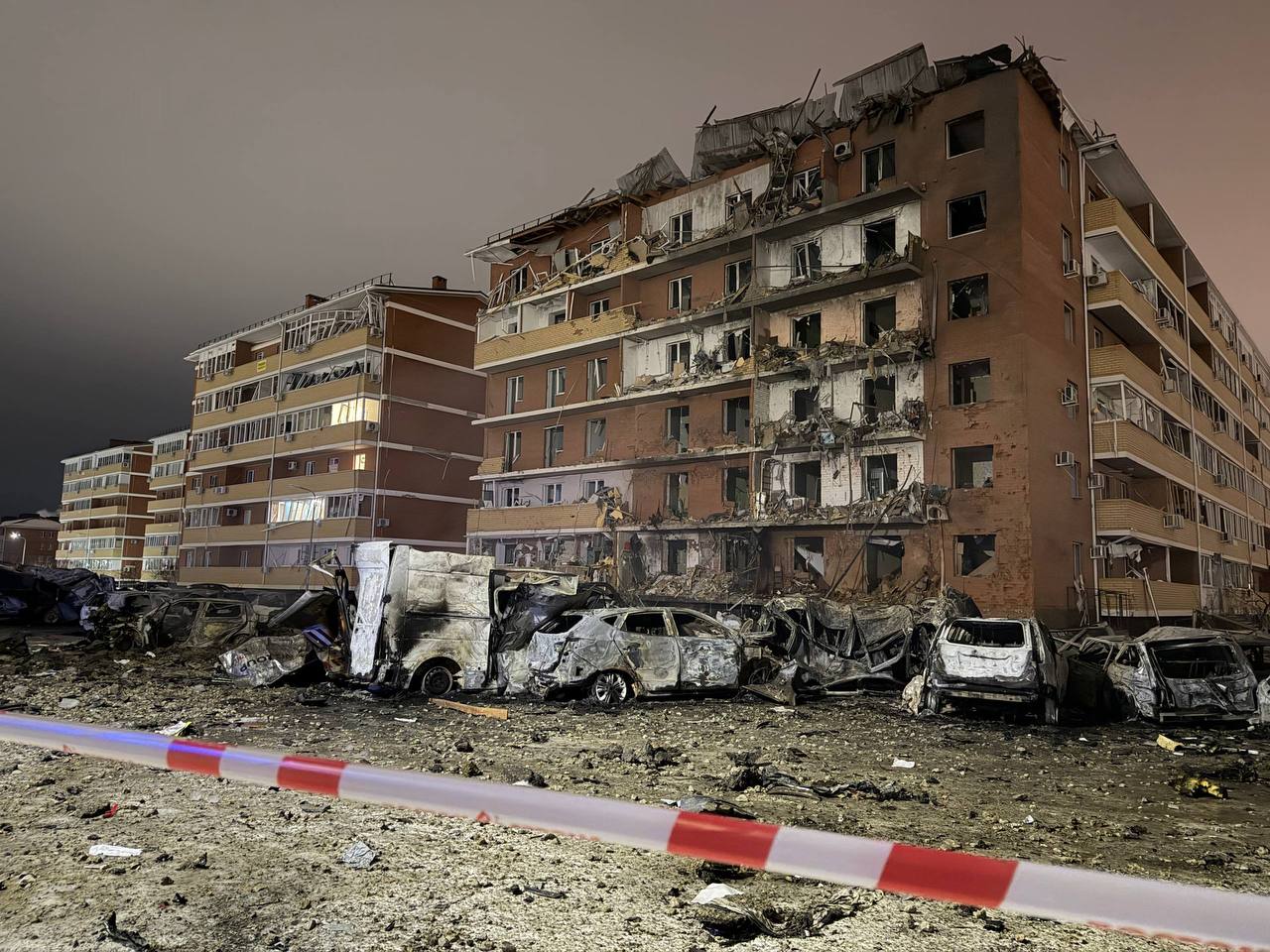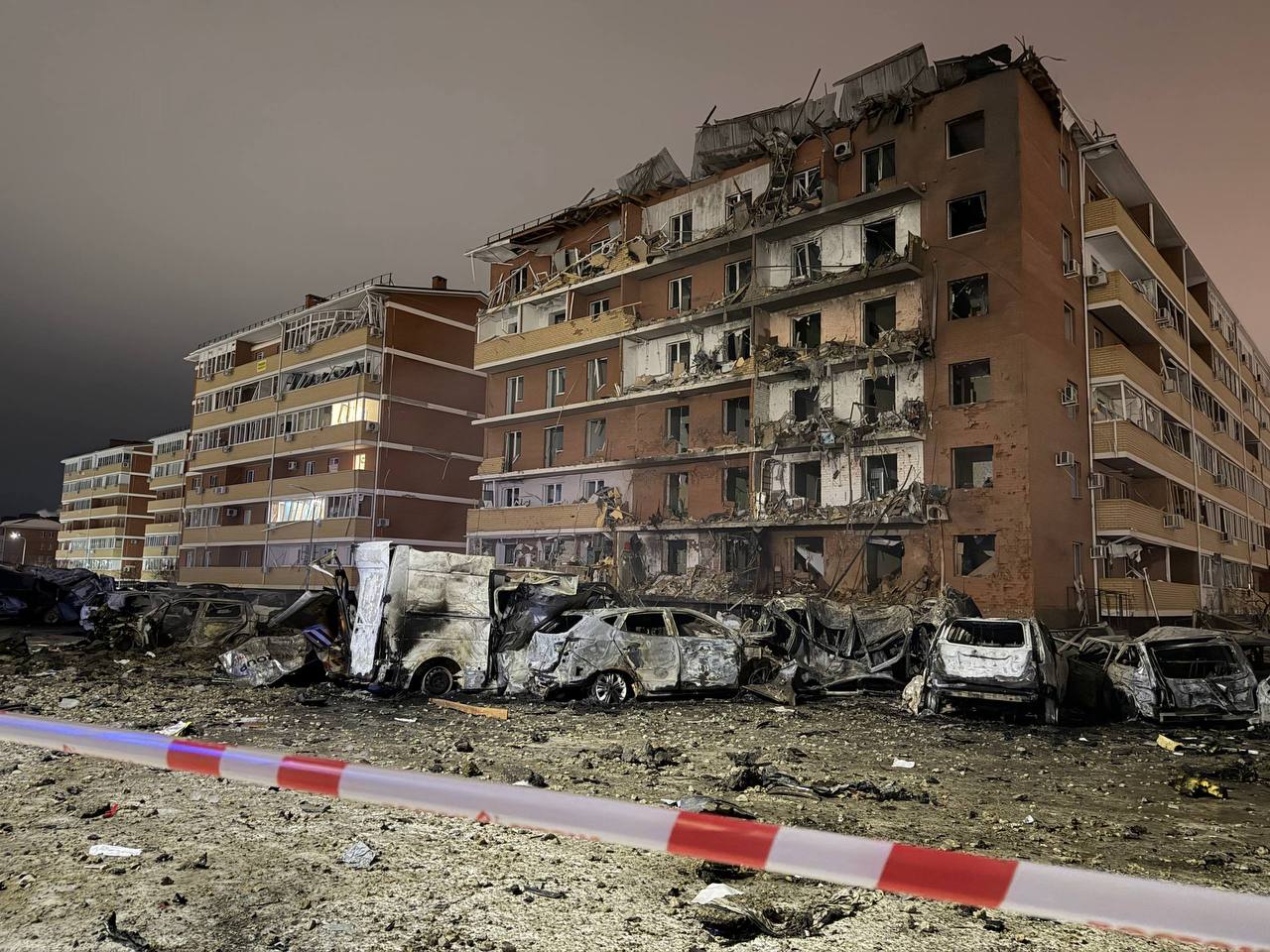The health of Adam Kadyrov, the son of Chechen leader Adam Kadyrov, who was injured in a traffic accident in Grozny, is improving, according to the Agency, citing sources close to the Russian presidential administration and the Chechen authorities.

December 14, 2001
***
Seven corpses were found in the Chernorechensky forest, 400-500 meters from the Rostov-Baku highway, opposite the turn in the village of Goyty. A resident of the village of Novye Aldy came across them, looking for a cow (according to other sources, it was a shepherd). He told the traffic police officer on duty at the post about the terrible find. He, in turn, informed the relatives of the abducted people, who were constantly “on duty” at the military commandant’s office in the city of Urus-Martan. On the same day, information about the discovery of corpses was transmitted to the media. Almost immediately, six corpses were identified. It turned out that they belonged to residents of the Urus-Martan district, detained by Russian security forces in November-December 2001. They were thrown out on both sides of the road, apparently directly from a moving car.
1. Vakha Gabisovich Tukaev, born in 1977, resident of the village of Gekhi-Chu;
2. Shamil Shirvanievich Jamaldaev, born in 1983, resident of the village of Alkhan-Yurt;
3. Adlan Muslimovich Taramov, born in 1978, resident of the village of Alkhan-Yurt;
4. Lom-Ali Umarovich Yunusov, born in 1982, resident of the village of Alkhan-Yurt;
5. Musa Akhmedovich Yu nusov, born in 1948, resident of the village of Alkhan-Yurt;
6. Muslim Adlanovich Khamiev, born in 1974, resident of the village of Gekhi.
About the people whose corpses were identified, we can definitely say that only Russian “security forces” could have killed them. The relatives had no doubts about this. So, they came for Muslim Khamiev in armored personnel carriers. On the way back, the kidnappers stopped at the Gekhi POM, and then they were freely allowed through the checkpoint between this village and the regional center of Urus-Martan. The military man on duty admitted to the relatives of the abducted man that they were FSB officers.
Armored vehicles were also used when detaining Lom-Ali and Musa Yunusov. In addition, there were quite a lot of “unknown” military men; they acted openly. Their affiliation was indicated both by their dress code and behavior specific to employees of Russian security forces.
Relatives of the other three killed are convinced that they were kidnapped and killed by Russian security forces. For example, gray Ural and UAZ-452 (“tablet”) cars arrived for Shamil Jamaldaev.
The bodies were found deep in the forest in a strictly protected area. The suburbs of Grozny begin a few kilometers away. There is also the Chernorechensky water intake. Residents of Chechnya tried not to appear in this place unless absolutely necessary. There was a danger of being blown up by a mine. Mines were laid there in large numbers by both sides of the conflict. In addition, it was possible to run into ambushes and secrets, risking being shot without warning. To top it all off, the forests of the republic were regularly subjected to artillery shelling. When the Alkhan-Yurt residents came to collect the corpses, they got the impression that they not only dumped corpses here, but also tortured people (there were traces of torture on the corpses) and, most likely, some were killed here. And they didn’t do all this in haste. The picture that appeared to their eyes was more reminiscent of an open-air torture chamber. So, a beam with ropes hanging down was attached to one of the trees. The ground around was trampled down, plastic bags, pieces of clothing and other items were strewn everywhere. On the corpse of Adlan Taramov there were eight through knife wounds, and there were blisters from burns around and inside the mouth. Most likely, boiling water was poured into his mouth before the murder. Muslim Khamiev's eyes were gouged out, one ear and nose were cut off, his throat was cut and his collarbone was broken. There were deep knife wounds in the area of the heart, and on the knees there were traces of burns from hot metal. He had not had time to grow a beard, which indicates that he was most likely killed on the day of his arrest. On the body of Lom-Ali Yunusov, in addition to traces of torture and stab wounds, gunshot wounds were also recorded. A control shot was fired into the head. Musa Yunusov's corpse was blown up.
Another argument in favor of the fact that the crime was committed by law enforcement officers can be considered the lack of any response on the part of the authorities to requests to establish the whereabouts of the abducted, identify the perpetrators and punish them. This is probably why the relatives of Vakha Tukaev, as soon as they identified his corpse and buried him in a rural cemetery, withdrew their statements from the law enforcement agencies of the Urus-Martan district. Subsequently, they did not apply anywhere and did not even know whether a criminal case had been opened on this fact.
Employees of the internal affairs department of the Zavodsky district of Grozny and employees of the Russian prosecutor's office went to the place where the corpses were found. As of 2006, the crime remained unsolved. Memorial Human Rights Center does not have any other information.
Immediately after the discovery of the corpses, an employee of the Memorial Human Rights Center visited the village of Alkhan-Yurt and met with a relative of the Yunusovs. Here is his story:
“On the night of December 9, at approximately 2.35, I woke up from the noise of people running on the asphalt. Looked out the window. I saw a lot of soldiers, about 20-25 people. After that, about five minutes passed, and there was a strong explosion. I ran outside and heard a woman crying. My wife managed to run out into the street before me. She said the neighbors seemed to have an explosion. We assumed it was probably gas. I approached the neighbor's house, which was built of brick. It was as if it had been cut off with a knife; it had been completely demolished from the foundation. Then I saw: the gas pipeline came down from the supports to the other side. Other neighbors’ houses were also blown up (first there was one explosion, and 30 seconds later there was a second). It turns out they blew up two houses. From the explosion of these two houses, the shock wave destroyed houses in the entire block. When I entered the courtyard of the second house, I asked the hostess: “What’s the matter?” She said: “My son, Lom-Ali, was taken away by the soldiers.” Then I asked in detail about what happened. She said: “Soldiers burst into our room. They tied us women up. Our mouths were sealed with tape, and gold items were torn from our ears and necks. We loaded our household things onto the cars, took our documents and left. But before that, it turns out, they mined the house and then blew it up.” I asked: “When they tied you up, did you see anything or not?” She said: “They laid the children on the floor. They covered them with mattresses and pillows so that the children couldn’t see anything.” - "How old are the children?" – “Eldest son, Lom-Ali, born in 1982. The soldiers took him with them. The second one is 12 years old, and the youngest girl is four years old.” “So, the military blew up Lom-Ali’s house, and he himself was taken away?” “Yes, but then we found out that they also took away his uncle, Musa. He lives nearby on the other side of the river. And his house was set on fire, but it didn’t burn down completely.”
What happened next? Early in the morning we got up, started the car, and called the local head of the administration, Vakhidov. He came only when it was dawn and said: “I’ll go to Urus-Martan to the commandant’s office, the GRU. I’ll see where your son is, and you do as you want.” We thought that since the soldiers came from the commandant’s office in the city of Urus-Martan, they would hide this fact, and we went to Grozny. There they submitted applications to the FSB, the military prosecutor and the prosecutor general. Three addresses. Let's go to Kalamanov's office. An application was submitted there. Then we sought an appointment with the government, but no one accepted us. Then we went to the local Grozny television, where the editor-in-chief and deputy director of the television studio had a detailed talk with us. They said: “We are not very pampered either. We are afraid to send people there. Because if such an incident happened, especially on Sunday, they watch us for two or three days. They take away our cameras. There was a case when we were taken away.” True, after that they gave us two operators. We brought them to Alkhan-Yurt. They rented a whole block of broken houses. And on December 10 in the evening they showed it on television. But not everything was shown.
And we continued to look for Musa and Lom-Ali. We wanted to find out where the military took them, but we couldn’t find out anything. And today, December 14, in the morning, the head of the local administration told us that “your two people are near Chernorechye. There is a cemetery there. There is a road there. Along this road in the forest they lie dead.”
When we arrived there, we found out that there were seven corpses. One was taken before us. His relatives identified him - he was from Urus-Martan. We loaded the remaining six corpses onto a car and took them to Alkhan-Yurt. Since two corpses were not from Alkhan-Yurt, we placed them in the central mosque of the village. We identified 4 corpses. They were from Alkhan-Yurt. And the remaining three corpses are from Urus-Martan.
Our neighbors told us to tell journalists about all this. Chechens have a custom of burying corpses immediately. We asked the old people not to bury the corpses. Like, if we find it, we will bring journalists to the village. And we went to Nazran to take journalists there. The old people promised us: “Since this is the case, we won’t bathe or bury.” We decided: the corpses lay in the forest for four days, if they lie there for another day, then nothing will happen to them.
Lom-Ali never picked up a machine gun, did not participate in hostilities, did nothing against the authorities, and is not a militant. And Musa never dealt with this matter either, did not participate in hostilities, did not speak out against the authorities. Now there is no work in Chechnya. But Musa had his own car, and he drove the taxi. But Lom-Ali did not work anywhere, he was at home all the time.
When the bodies were discovered, we saw that Musa's corpse had been blown up and scattered in pieces. In one place we found half a head, in another - a hand. We probably wouldn't have identified Musa. His wife identified him. I even recognized the hand. She said: “This is Musa’s hand... This is Musa’s head...”. So we picked up the pieces. Lom-Ali's corpse was pierced with either a bayonet or a knife. He has many such wounds. There are also gunshot wounds.
We went there after a message from the head of administration, by accident. A resident from Aldov was looking for his cow there and came across two corpses. He did not see the other corpses. And two were immediately reported to the Factory Department of Internal Affairs. The head of this regional department arrived at the scene. This was four days ago. He invited representatives of the prosecutor's office to the place. They seem to have taken pictures. When the police arrived, it turned out that there were not two corpses, as the boy saw, but seven.
Who are the other two killed from Alkhan-Yurt? After the assassination attempt on the commandant [of the Urus-Martan region, General Gadzhiev], our neighbor Jamaldaev Shamil Shirvanievich, born in 1982, was detained. They took him in the evening, at about five o'clock. His relatives also looked for him, but they never found him. Today, December 14, only the body was discovered. They lay together. Shamil was killed with a firearm.
I did not see the fourth corpse from Alkhan-Yurt. But I know that this is Aslan Muslimovich Taramov.
Taramov and Dzhamaldaev were detained by Russian soldiers who were driving Ural and UAZ cars. Jamaldaev Shamil was on the street. When he was taken, his relatives were not told anything. And Taramov was detained in the morning right in his bed. And again they did not say why he was being arrested. Shamil's father is the school director. Every day I asked him what was known about my son. He said that he had contacted the administration of the Urus-Martan district, the prosecutor’s office, and the district commandant’s office. There they told him that they were looking for him. Shirvani said: if they had even said that they had to pay for the release of their son, he would have collected the money and ransomed his son. I would even beg to ransom it.”
The corpses discovered in the forest are not the first time that Russian security forces have killed residents of Alkhan-Yurt. And so they accepted an appeal to the head of the administration of Chechnya, Akhmad Kadyrov, the military commandant of the republic, Sergei Kizyun, and the head of the administration of the Urus-Martan district, Shirvan Yasaev.
***
Near the village of Prigorodnoye, Russian military personnel fired at a RAF passenger minibus and the cars following them. 27 people were taken from the scene of the incident to the hospital in Shali. Many are seriously injured. Of these, two women subsequently died. Both are residents of the village of Avtura. One of them is the mother of seven children. Her sons (16 and 21 years old) and daughters (11 and 18 years old) were wounded along with her. The second left six children. Her son was also in the minibus and was injured.
The shelling was carried out from two armored personnel carriers with their side numbers covered up. Only one had the number 2 visible on it. The military men sitting on the armor were wearing masks.
A resident of the village of Khatuni, interviewed by an employee of the Memorial Human Rights Center, was wounded in the stomach and leg. According to her, the morning after the shelling, the “Shali commandant” visited them at the hospital, accompanied by five armed guards. Most likely, they were talking about Gennady Nakhaev. He was interested in the circumstances of the incident and what the victims knew about it. Walking around the wounded, he asked: “Where did this happen?”, “Do you remember the number of the tank, was it wheeled or tracked?” But he did not promise that he would try to punish those responsible for the shelling. While the wounded woman was in the hospital, the military broke into the building several times. One day they took away two young people who were wounded near Prigorodny. One of them is a resident of the village of Avtura. The mother was next to the second one at the time of the arrest. The woman cried and ran after the soldiers until they fled in their cars. Memorial Human Rights Center does not know what happened to them subsequently, whether they were released or not. According to her, only two people in the minibus were not injured: the driver and her 16-year-old son. The son was slightly wounded and on the second day he was allowed to go home from the hospital. She does not consider it an accident that so many people were seriously injured at once. The military from armored personnel carriers fired, aiming right at the middle of the minibus.
The woman also said that she came under fire while returning to her home in Khatuni from Ingushetia. According to her, on July 8, 2000, the Russian military took many young people who lived in her village or were traveling in cars to the location of the 45th regiment. Her 21-year-old son also fell into their hands. The military stabbed his calves with knives and carved a cross on his shoulder. After this incident, the woman took her children (five sons and a daughter) to Ingushetia. She settled them in the Bela refugee camp on the outskirts of Karabulak and visited them from time to time.
From the book “People Live Here”, Usam Baysaev, Dmitry Grushkin, 2006.



